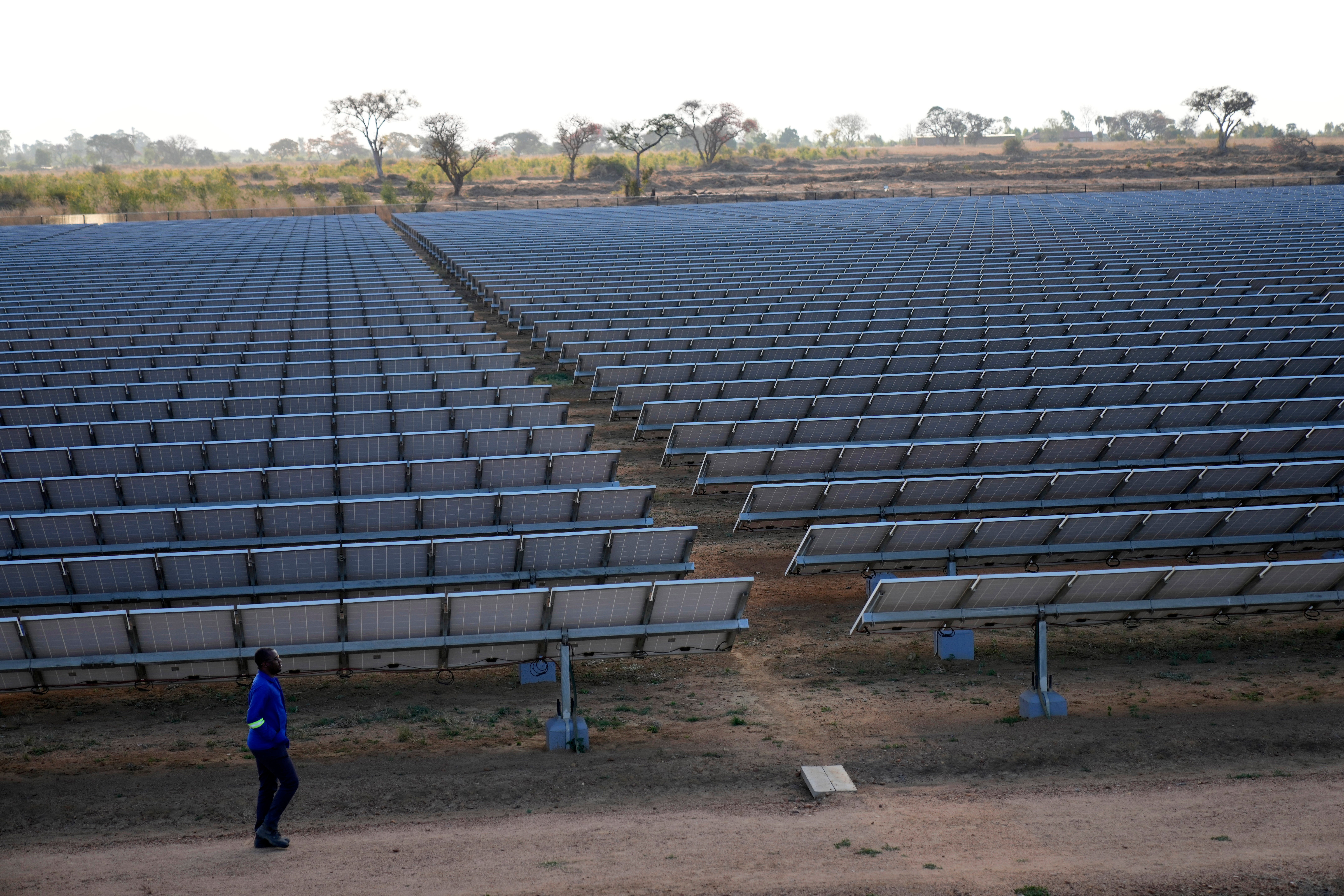African nations could become world’s solar superpowers. Time to invest to make it happen
Solar energy boasts far more long-term potential and need not impact upon agricularal land, writes James Moore, according to a new report by Carbon Tracker


Climate optimism? There’s not much of that to be had right now but here’s a little from Carbon Tracker, a think tank concerned with energy transition, with the 2022 United Nations Climate Conference under way.
A report – Afrcian Sun: Why Solar Not Gas Offers Continent the Best Economic Opportunity in the Transition – today states that: “The energy transition from fossil fuels to renewables is inevitable and irreversible.”
Good news, then.
Perhaps the only service that Russian leader Vladimir Putin has performed for the world is to accelerate it, with European nations cutting ties and looking for alternatives having recognised that Russia cannot be relied upon to supply their energy needs.
In the interim, they are seeking alternative sources of supply, including from Africa. But that creates a problem, which the report highlights: “Gas-producing African nations (e.g. Nigeria, Algeria, Egypt) are falsely relying on gaining economic and financial wealth from a fossil sector that countries in the global north (i.e. Europe) have already committed to reducing – and now ever more quickly.”
In response to the illegal Russian invasion of Ukraine, Europe increased its 2030 renewable energy target pledge from 22 per cent to 45 per cent. Europe’s move from fossil fuels to clean energy is very welcome and a sign of that irreversible transition in action.
The sting in the tail is that Africa’s current commitment to build up its gas network, with the hope of expanding its export market more to Europe, will inevitably be undermined by a decline in gas demand in future as new sources of clean energy are brought onstream.
The current high wholesale prices will not stay that way if demand from high energy users falls through their increasing utilisation of clean energy. African investments in gas thus run the risk of becoming white elephants.
The global south once against gets stiffed. Isn’t that always the way?
It needn’t be like that. The report indeed cites this as a risk. It also highlights the privations suffered by African nations without access to their own gas, which will be exposed to a double hit of volume risk and severe impact on affordability for their power systems from volatile prices. A focus on solar could radically change the calculus, insulating them from this sort of shock.
Renewable energy, particularly from solar, provides a potentially vast new alternative, zero-emission energy system that could be deployed across Africa with potentially far less technical complexity than currently required to extract fossil fuels.
“Transitioning to solar also creates far more energy certainty because it reduces the risk of being reliant on importing from energy-producing nations, especially in times of conflict,” the report notes.
Africa has more solar potential than any other continent, with the possible exception of Australasia, yet it currently represents only 2 per cent of the global utility-scale solar electricity generation.
Sceptics may raise the threat of risks to agricultural production and land from solar farms on a continent in which hunger is an ever-present threat to a substantial part of the population.
But that need not be so. The report uses South Africa as a case study. There rooftop panels alone “could create an installed capacity of 72GW” per the Council for Scientific and Industrial Research (CSIR).
“Even if ground-mounted solar farms are considered, the CSIR study estimated that up to 220GW of capacity could be installed in ‘Energy Environmental Assessment’ areas,” it says.
These would amount to just 0.5 per cent of the country’s land mass. Food production therefore need not be impacted.
The tragedy is that South Africa is cited as having an over-reliance on coal for electricity generation even though new solar is already cheaper and costs continue to fall.
Meanwhile, the report warns that the “vision to expand natural gas production” by gas producers “will leave it (Africa) financially stranded”.
Solar could become Africa’s long-term energy backbone, while offering the potential for the export of excess capacity.
This would, obviously, be particularly beneficial to states without access to hydrocarbons, which have been suffering from the impact of the war in Ukraine. But it is a potential across-the-board win. It just requires policy support. Also investment, both in terms of private capital, the cost of which has fallen, and from wealthier countries.
Much has been discussed about the debt owed by the north to the south in terms of energy transition and climate change. It’s been a theme of the UN Cop conference. Grants to facilitate the creation of new solar superpowers would be a fine way of paying some of it down.
Join our commenting forum
Join thought-provoking conversations, follow other Independent readers and see their replies
Comments
Bookmark popover
Removed from bookmarks